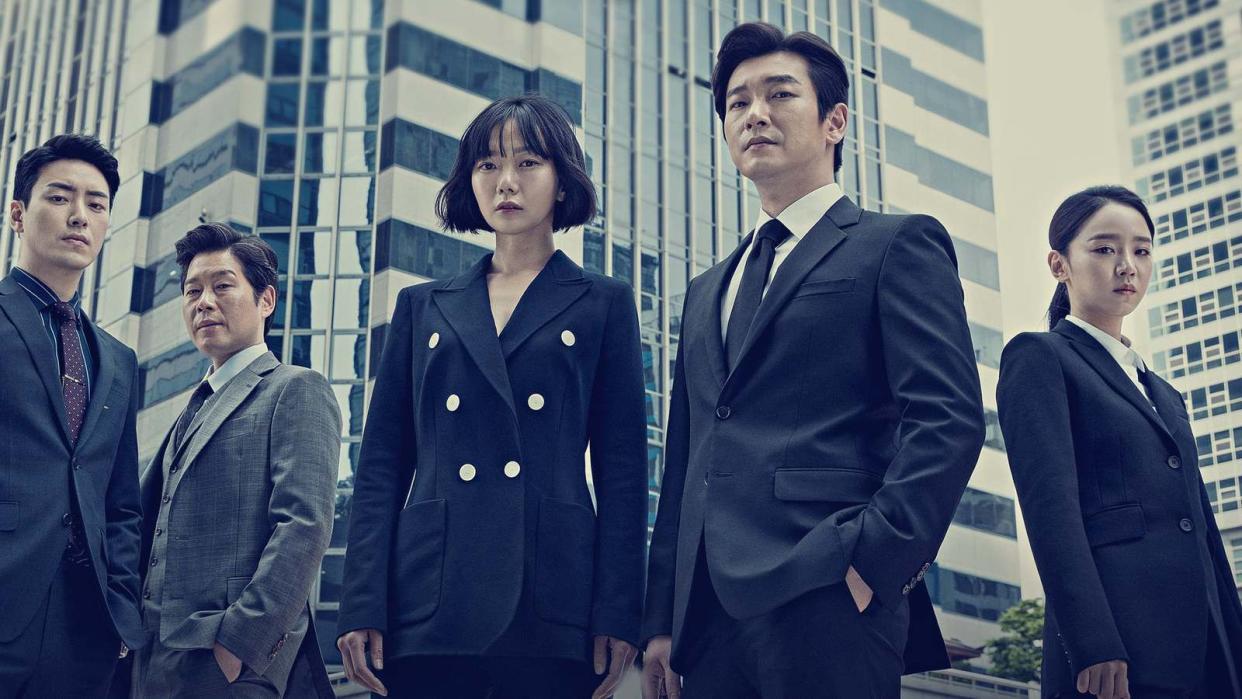Stranger Season 2 review: Prosecutors and police clash in sequel to hit series

By Bryan Tan
This review covers episodes 1-4 of Stranger Season 2, available currently on Netflix.
The first season of the fast-paced, investigative thriller Stranger (2017) ended its run to great acclaim, winning multiple awards for Best Screenplay (Lee Soo Yeon) and Best Actor (Cho Seung Woo) at the 2018 Baeksang Awards.
It makes a reprise with season two after more than three years, centred around the duo of the Sherlock-like figure of Prosecutor Hwang Si Mok (Cho Seung Woo) and his trusty sidekick, Senior Police Inspector Han Yeo Jin (Bae Doo Na). Hwang, now a prosecutor in the Supreme Prosecutor’s Office of South Korea, has an eidetic, almost photographic memory, perfect for his role as a criminal investigator.
Yet, Hwang struggles heavily with empathy and social graces (which are paramount in South Korea’s hierarchical culture) as a result of a partial lobotomy as a child, often ending up ruffling the feathers of his colleagues and superiors in his dogged pursuit of the truth.
Han, the Watson to Hwang’s Sherlock, often finds herself mentoring and coaching her partner on matters of acceptable social etiquette.
If you were me, you’d be forgiven for being confused by the myriad side plots and putting names to faces.
After all, the second season was released a staggering three years after the first. You might want to re-watch the first season to catch up on the storyline before watching this sequel.
Season 2 also departs from the previous plotline driven by the two lead actors, now fixating on the fractious squabbles of the South Korean police force and their prosecutorial counterparts.
Mild spoilers follow for the first four episodes of Stranger 2:
This season, of which four episodes have been released so far (two episodes are dropped each weekend on Netflix), Hwang and Han find themselves on different sides of the table. Instead of aligning to uncover intrigues of murder and corruption, they find themselves facing off against each other, along with the higher-ups in their respective departments, who have formed teams to butt heads on the polarising issue of discretionary investigative rights.
A serious bugbear between the two judicial bodies, it has been an ongoing dispute since the late ’90s and continues on into the present, where prosecutors are accused of abusing their powers as oversight to the police in the matters of approving warrants and closing cases. The police are similarly accused of violating the rights of citizens and covering up corruption within their ranks.
Our main characters are mired in the dilemma of having to choose sides and affirm their loyalties, which threaten to take a toll on their partnership. Hwang and Han are entrusted with the increasingly complex and monumental task of weeding out systemic corruption and abuse of power pervading even the highest and lowest ranks of the police force and the office of the prosecutors.
In a nutshell, the first four episodes have set the tone to expose the often messy and bureaucratic politics in the judicial bodies of South Korea. With nary a lull in between scenes, it is a gripping and intellectual ride, with the precarious fate of the two lead actors in the balance. Will they continue to maintain their partnership, or will the clashes with the powers that be prove too much and tear them apart?


